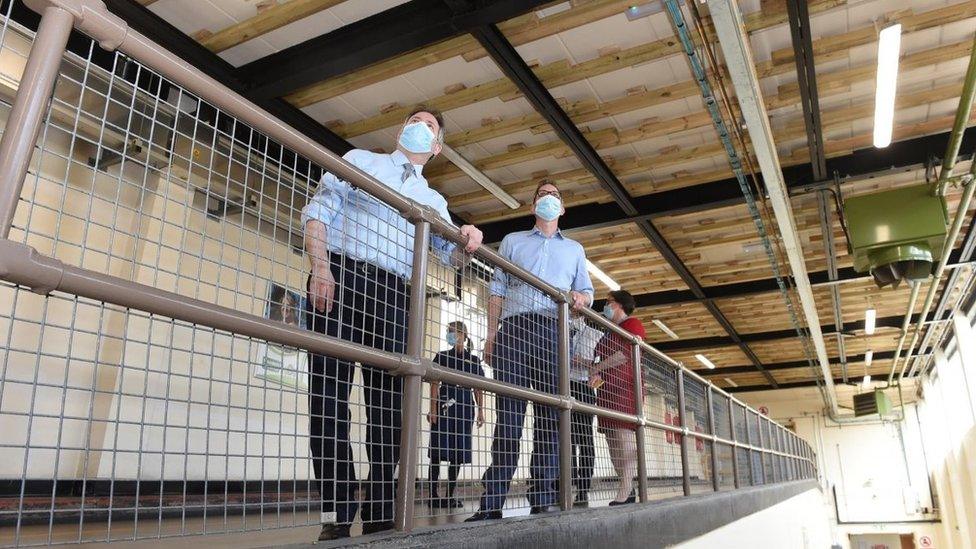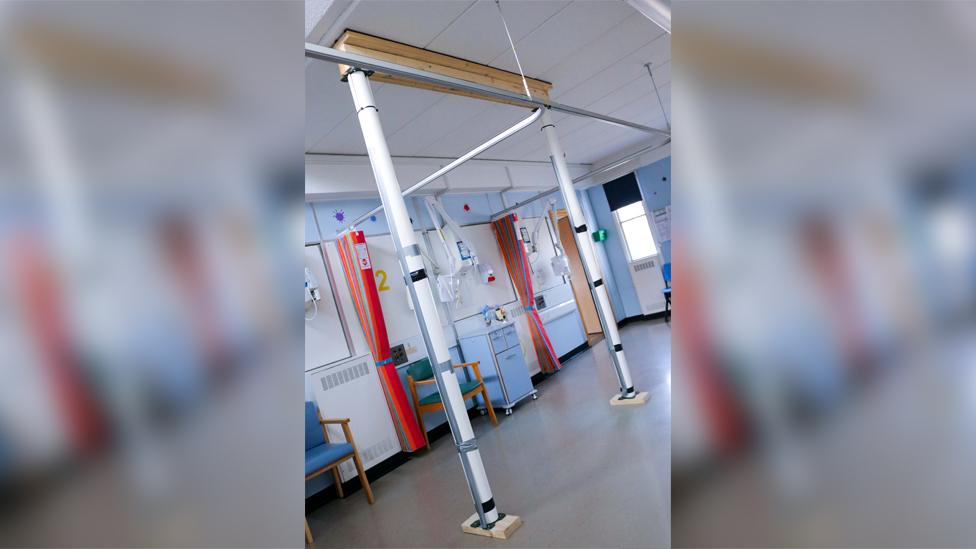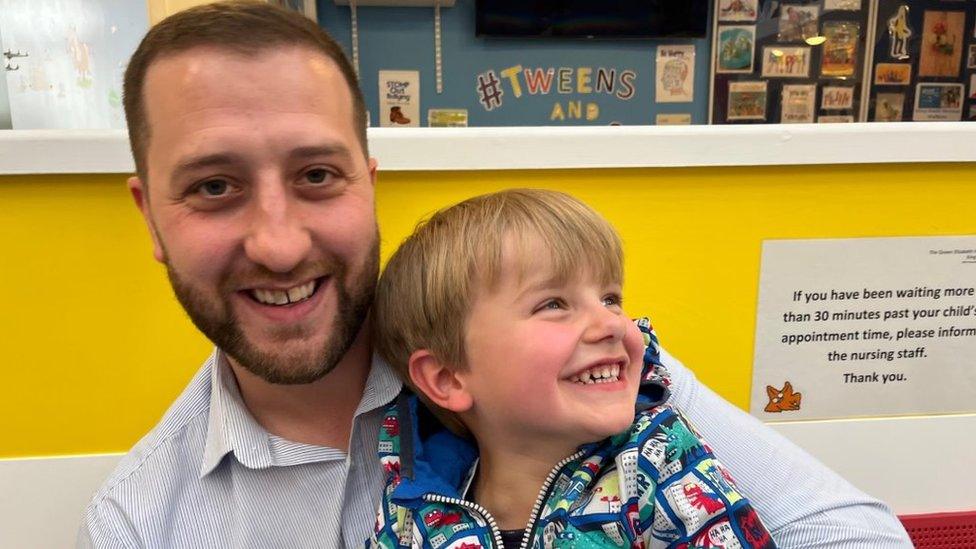King's Lynn Queen Elizabeth Hospital: 'No Plan B' if funding bid fails
- Published

Health minister Edward Argar saw the structural problems at the Queen Elizabeth Hospital on a recent visit
Time is running out to approve funding for a replacement Norfolk hospital and "there isn't a plan B", according to its management.
There are 1,528 props supporting the roof of the Queen Elizabeth Hospital in King's Lynn, with the safety works having a limited lifespan.
The Trust has submitted a bid to be one of eight new projects across England.
The Department for Health and Social Care said it aimed to announce the shortlisted sites later this year.
Estates director Nicola Hunter said without the funding the hospital would not be able to provide services beyond 2030.
Ms Hunter said: "There isn't a Plan B. We've got 1,500 props in the building at the moment which is three times the amount of beds we have."
By the end of the decade, she said, "most of the first floor would no longer be safe".

There are many props and temporary supports in place across the hospital
In 2020, the prime minister announced that 40 hospitals would be built by 2030, external as part of a package worth £3.7bn, with a further eight schemes invited to bid for future funding.
The Queen Elizabeth Hospital King's Lynn NHS Foundation Trust (QEHKL) submitted an expression of interest for the latter programme last September.
However, The Sunday Times has reported concerns the national building programme was in disarray, external over mounting costs, delays and disagreements between government departments.
QEHKL was opened in 1980 and was one of seven hospitals built using a material called reinforced autoclaved aerated concrete (RAAC).
This material has serious weaknesses and is deteriorating, with uncertainty over its structural integrity leading to more than £100m being spent this financial year on safety measures across the affected sites.

'Important to have it'

Ben Russell says having a hospital nearby was important after his son was rushed to A&E
Patients are concerned about the possibility they might lose their hospital.
Ben Russell was at QEHKL with his son Freddie, who had been rushed to A&E with breathing difficulties.
Mr Russell said: "It was really worrying seeing him not being able to breathe.
"It's our only hospital for quite a few miles, so it's really important it's here and on our doorstep".

Analysis by Nikki Fox, BBC Look East health correspondent
It's believed the Treasury is holding off approval for funding until it knows the cost of every single hospital in the programme.
The problem with that is all the plans are at different design stages. Some plans have had to be redrawn because of learning to do with the pandemic, and rising building material costs are also having to be factored in.
But it's been three years since approval for the first hospitals in the scheme, including the Princess Alexandra hospital in Harlow - and they haven't even got a start date, let alone lifted a shovel.

Hospital programme 'on track'
The Queen Elizabeth is waiting to hear whether it has made it on to the shortlist of the eight new hospital schemes.
Responding to the hospital's concerns and reports of delays in the building programme, the Department for Health and Social Care said it aimed to announce which sites had been shortlisted later this year.
A spokesman said it had received 128 bids for funding from 100 different NHS Trusts, and it was still on track to deliver the planned new hospitals by 2030.

Find BBC News: East of England on Facebook, external, Instagram, external and Twitter, external. If you have a story suggestion email eastofenglandnews@bbc.co.uk, external